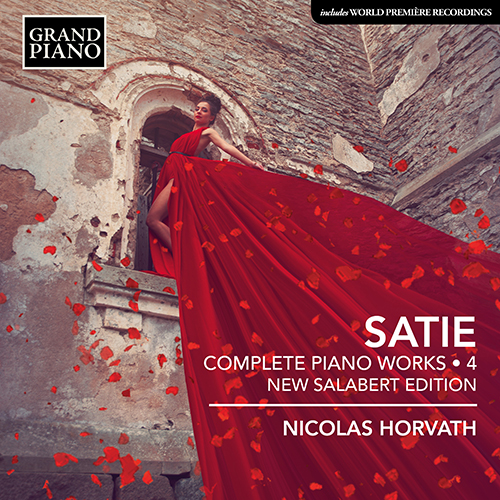
About this Release
“This new volume is full of old favourites and new surprises. Many will be familiar with the melody of Je te veux, but I've decided to perform it in a way that I believe is much closer to the composer's original intention. Satie dedicated it to "the Queen of the Slow valse" so I've slowed down the tempo that people most often hear. I particularly love Tendrement & Illusion, and believe that this music could have been a perfectly fit for the soundtrack of the movie "La La Land." Alongside world premières, other Satie evergreens include Prélude de Mr Mouche, Poudre d’Or, Picadilly and Diva de l’Empire. I hope you enjoy listening to this music as much as I have enjoyed learning and playing them on my own 1905 Erard period piano. Together with a unique booklet full of never-seen-before images and deep detailed text, the journey to discovery is sure to be delightful!” — Nicolas Horvath
SATIE, ERIK (1866–1925)
Complete Piano Works • 4 (New Salabert Edition)
- Nicolas Horvath, piano
‘Everything I undertake misfires immediately. I produce dirty rubbish and that will accomplish nothing.’ So wrote Erik Satie in 1903 during a period of transition that saw him produce the last of his Rose Croix style music in Verset laïque & somptueux, but in making a living writing for the music halls, he also created hugely popular songs such as Je te veux. The works on this fourth volume of Satie’s complete solo piano music were written between 1897 and 1906. They include rare theatre music and tender waltzes that contrast with jaunty ragtime and pantomime dances.
This recording was made on a period instrument: Erard, model 90703 (1905)
Tracklist
|
Satie, Erik
|
|
1
Pièce sans titre, "Caresse" (1897) (1897) (00:02:23)
|
|
2
Je te veux (1901) (00:05:37)
|
|
Jack in the Box (1899) (00:08:00 )
|
|
3
I. Prélude * (00:02:47)
|
|
4
II. Entr'acte * (00:02:46)
|
|
5
III. Final * (00:02:31)
|
|
6
La mort de Monsieur Mouche: Prélude (1900) * (00:01:32)
|
|
7
Verset laïque et somptueux (1900) (00:00:55)
|
|
8
Le Poisson rêveur (The Dreamy Fish), "Modéré" (1901) (00:07:09)
|
|
9
Le bœuf Angora (The Angora Ox) (version for piano) (1901) (00:05:42)
|
|
10
Poudre d'or (1902) (00:05:51)
|
|
11
Tendrement (version for piano) (1902) * (00:03:00)
|
|
12
Illusion (1902) * (00:04:51)
|
|
13
Le Piccadilly (1904) (00:01:54)
|
|
14
La Diva de l'Empire (Marche chantée dans la Revue Dévidons la bobine!) (1904) * (00:01:56)
|
|
15
La Diva de l'Empire (Intermezzo américain d'après la célèbre chanson de Bonnaud, Blès et Satie) (arr. H. Ourdine for piano) (1904) * (00:03:00)
|
|
Bach, Johann Sebastian
|
|
16
Nun ruhen alle Wälder, BWV 392 (arr. E. Satie for piano) (1906) * (00:01:17)
|
|
Satie, Erik
|
|
17
Pousse l'amour: Chanson andalouse (1906) * (00:02:11)
|
|
18
[Exercise] [pour quatuor à cordes] (1905) * (00:00:40)
|
|
19
Fugue-valse (1906) * (00:01:34)
|
|
20
Passacaille (1906) (00:02:37)
|
The Artist(s)
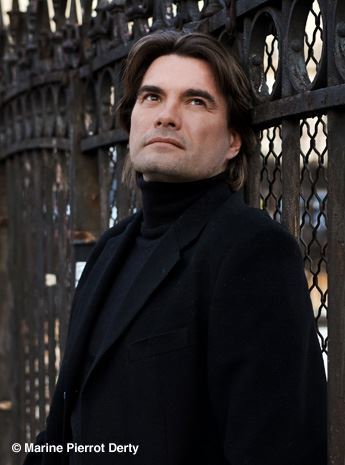 Nicolas Horvath began his music studies at Monaco’s Académie de Musique et de Théâtre Prince Rainier III and soon began to make an impression on a number of artists who would become his mentors. Aged 16 he caught the attention of the American conductor Lawrence Foster before coming to the notice of several distinguished international pianists, including Liszt specialist Leslie Howard. He is the recipient of numerous awards, including First Prize at both the Scriabin and the Luigi Nono International Competitions. He has become noted for hosting concerts of unusual length, sometimes lasting over twelve hours, such as the overnight performance of the complete piano music of Erik Satie at the Paris Philharmonie before a cumulative audience of 14,000 people. In 2019 he performed alongside Philip Glass at the same venue in a programme devoted to the American composer’s piano music. Horvath’s extensive and varied discography on Grand Piano includes the highly acclaimed Philip Glass solo piano music edition, Glassworlds; the complete piano works of Erik Satie; piano sonatas by the Estonian composer Jaan Rääts and music by the American experimental composer Alvin Lucier; Carl Czerny’s 30 Études; and lesser-known piano music by Claude Debussey, Anne-Louise Brillion de Jouy and Hélène de Montgeroult. Nicolas is a Steinway Artist.
Nicolas Horvath began his music studies at Monaco’s Académie de Musique et de Théâtre Prince Rainier III and soon began to make an impression on a number of artists who would become his mentors. Aged 16 he caught the attention of the American conductor Lawrence Foster before coming to the notice of several distinguished international pianists, including Liszt specialist Leslie Howard. He is the recipient of numerous awards, including First Prize at both the Scriabin and the Luigi Nono International Competitions. He has become noted for hosting concerts of unusual length, sometimes lasting over twelve hours, such as the overnight performance of the complete piano music of Erik Satie at the Paris Philharmonie before a cumulative audience of 14,000 people. In 2019 he performed alongside Philip Glass at the same venue in a programme devoted to the American composer’s piano music. Horvath’s extensive and varied discography on Grand Piano includes the highly acclaimed Philip Glass solo piano music edition, Glassworlds; the complete piano works of Erik Satie; piano sonatas by the Estonian composer Jaan Rääts and music by the American experimental composer Alvin Lucier; Carl Czerny’s 30 Études; and lesser-known piano music by Claude Debussey, Anne-Louise Brillion de Jouy and Hélène de Montgeroult. Nicolas is a Steinway Artist. The Composer(s)
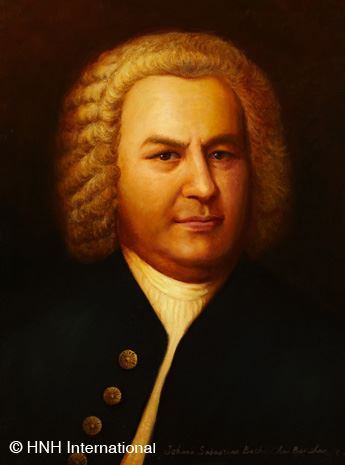 Johann Sebastian Bach belonged to a dynasty of musicians. In following inevitable family tradition, he excelled his forebears and contemporaries, although he did not always receive in his own lifetime the respect he deserved. Despite widespread neglect for almost a century after his death, Bach is now regarded as one of the greatest of all composers. Bach-Werke-Verzeichnis numbers, abbreviated to BWV, are generally accepted for convenience of reference.
Johann Sebastian Bach belonged to a dynasty of musicians. In following inevitable family tradition, he excelled his forebears and contemporaries, although he did not always receive in his own lifetime the respect he deserved. Despite widespread neglect for almost a century after his death, Bach is now regarded as one of the greatest of all composers. Bach-Werke-Verzeichnis numbers, abbreviated to BWV, are generally accepted for convenience of reference. 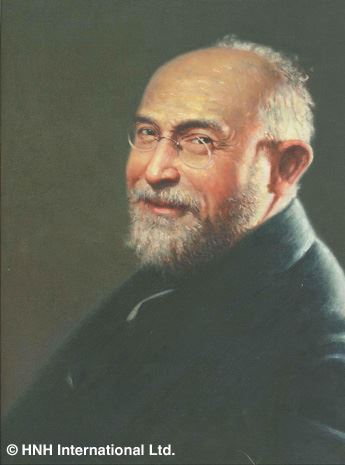 A French composer as eccentric in his way of life as in his music, Satie exercised considerable influence over some of his more distinguished contemporaries, including Debussy, Ravel and Poulenc, particularly through his tendency towards extreme simplicity. A number of his compositions have become very familiar to many, largely through their use in other contexts.
A French composer as eccentric in his way of life as in his music, Satie exercised considerable influence over some of his more distinguished contemporaries, including Debussy, Ravel and Poulenc, particularly through his tendency towards extreme simplicity. A number of his compositions have become very familiar to many, largely through their use in other contexts. Reviews
“Horvath succeeds in the right mix of laconicism, nonchalance and mischievous irony, all with gripping, compact sound and clear contours, always with a feel for the wit in the precious little details.” – Concerti

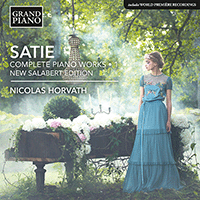
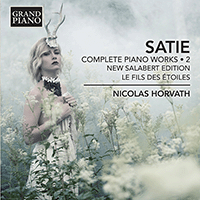
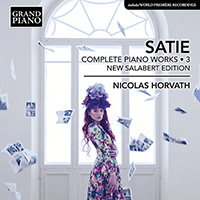
 Grand Piano has gained a reputation for producing high quality recordings of rare keyboard gems. Dedicated to the exploration of undiscovered piano repertoire, the label specialises in complete cycles of piano works by many lesser-known composers, whose output might otherwise have remained unknown and unrecorded.
Grand Piano has gained a reputation for producing high quality recordings of rare keyboard gems. Dedicated to the exploration of undiscovered piano repertoire, the label specialises in complete cycles of piano works by many lesser-known composers, whose output might otherwise have remained unknown and unrecorded.






